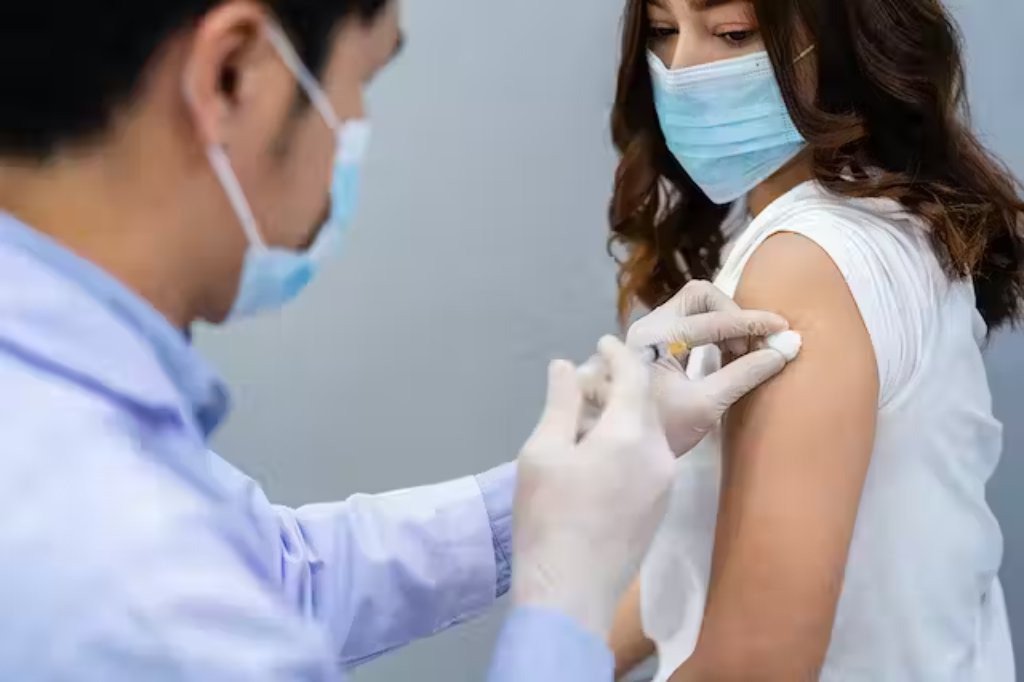1401 Avocado Ave, Suite 104 Newport Beach, CA 92660 | Current Patients: (949) 640-1320 | Fax: (949) 640-1324
Monday - Friday: 9:00am-6:00pm | Saturday: 9:00am-2:00pm | Closed Sunday & Major Holidays
The Importance of Getting Vaccinated And Their Benefits
Vaccines are one of the most effective tools in modern medicine for preventing and controlling the spread of infectious diseases. They work by introducing a small and harmless piece of the pathogen into the body, which triggers the immune system to produce an immune response without causing illness.
It prepares the body to fight off the pathogen if it is encountered in the future, providing immunity against the disease.
Getting vaccinated is important for both individual and public health. It is especially vital for vulnerable populations, such as young children, pregnant women, and individuals with weakened immune systems.

Why Do You Get Vaccinated?
What are Vaccines?
Vaccines have been instrumental in reducing the incidence and severity of many infectious diseases, including polio, measles, rubella, and smallpox. They have also been shown to be effective in preventing certain types of cancer, such as cervical cancer caused by the human papillomavirus (HPV).
Vaccines are rigorously tested for safety and effectiveness before they are approved for use by the public. The approval process involves multiple phases of clinical trials and testing on animals and humans to ensure that the vaccine is safe and effective. Once the newly discovered vaccine gets approval, it is monitored for safety via post-marketing supervision. The Centers for Disease Control and Prevention (CDC) and the Food and Drug Administration (FDA) monitor the safety of vaccines after they are available for public use.
Benefits of Vaccines
Vaccines have numerous benefits, including –
- Protecting against infectious diseases
- Preventing outbreaks of contagious diseases
- Reducing the severity of illnesses
- Preventing long-term complications and disabilities from infectious diseases
- Saving lives
In addition to these benefits, vaccines also have economic benefits. Vaccines are much less expensive than treating infectious diseases and can prevent lost productivity due to illness.
Recent Post
Types of Vaccines
There are several different types of vaccines, each designed to protect against a specific pathogen –
- Live attenuated vaccines: These vaccines use live, weakened viruses or bacteria to stimulate an immune response. Examples include the measles, mumps, and rubella (MMR) vaccine and the varicella (chickenpox) vaccine.
- Inactivated vaccines: These vaccines use killed viruses or bacteria to stimulate an immune response. It includes vaccines for hepatitis A and polio.
- Subunit, recombinant, and conjugate vaccines: These vaccines use specific pathogen parts to stimulate an immune response. Its instances are the Haemophilus influenzae type b (Hib) vaccine and the human papillomavirus (HPV) vaccine.
- mRNA vaccines: These vaccines use a small piece of the genetic material called messenger RNA (mRNA) to teach the body to produce a specific protein that stimulates an immune response. Examples include the Pfizer-BioNTech and Moderna COVID-19 vaccines.
All these vaccines make us immune to several harmful diseases that could even be life-threatening. While vaccines can cause side effects, these are generally mild and go away on their own. Serious side effects are rare.
Get the Best Immunization Services To Shield Against Diseases
Prevention is the key to better health. Newport Center Compounding Pharmacy offers a comprehensive range of vaccines to keep you safe and well. Our professional pharmacists ensure accurate information and expert administration, making the vaccine experience as smooth as possible.
If you are looking for any vaccination and secure your health and peace of mind. At Pharmacy, Our Commitment is to become the Best Pharmacy in Newport, California. Please feel free to contact us if you need any help.

